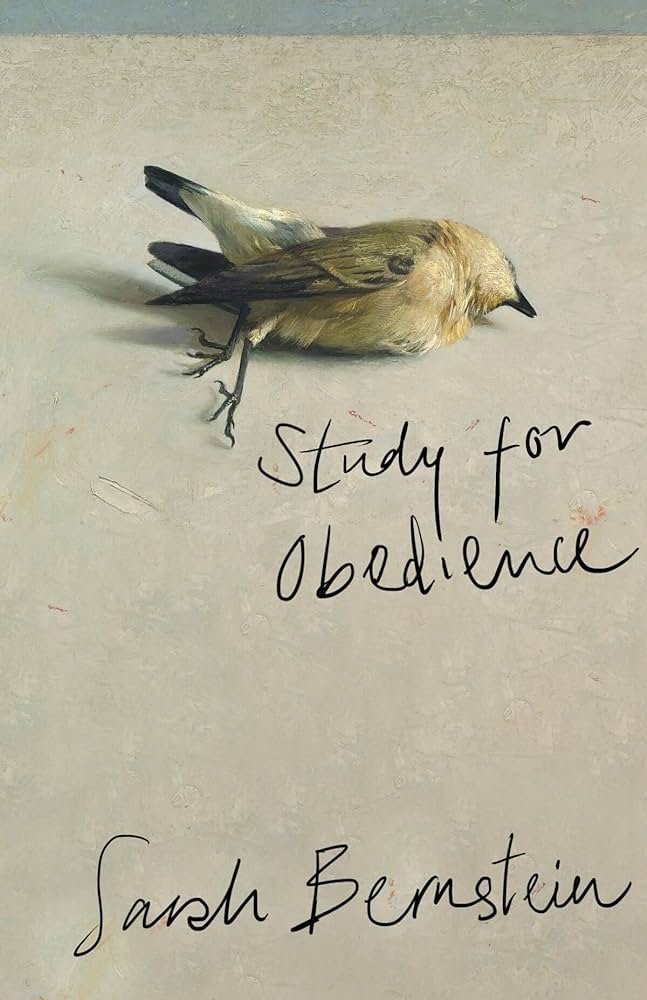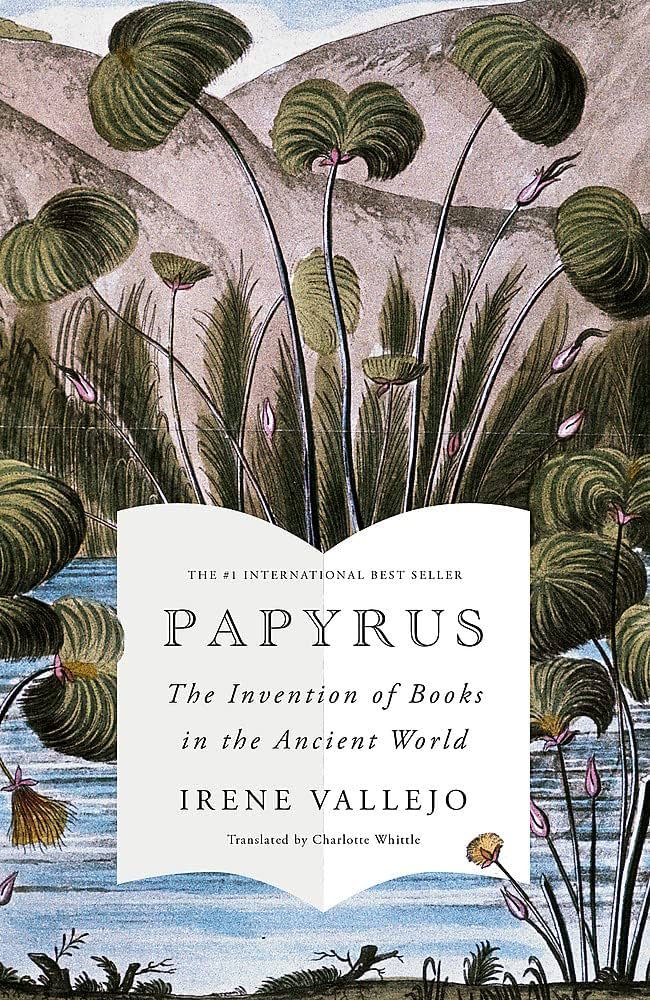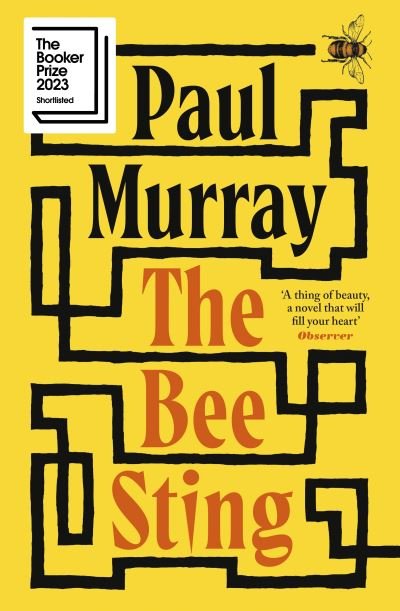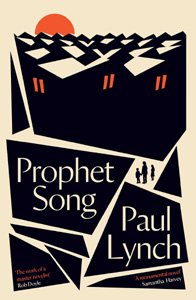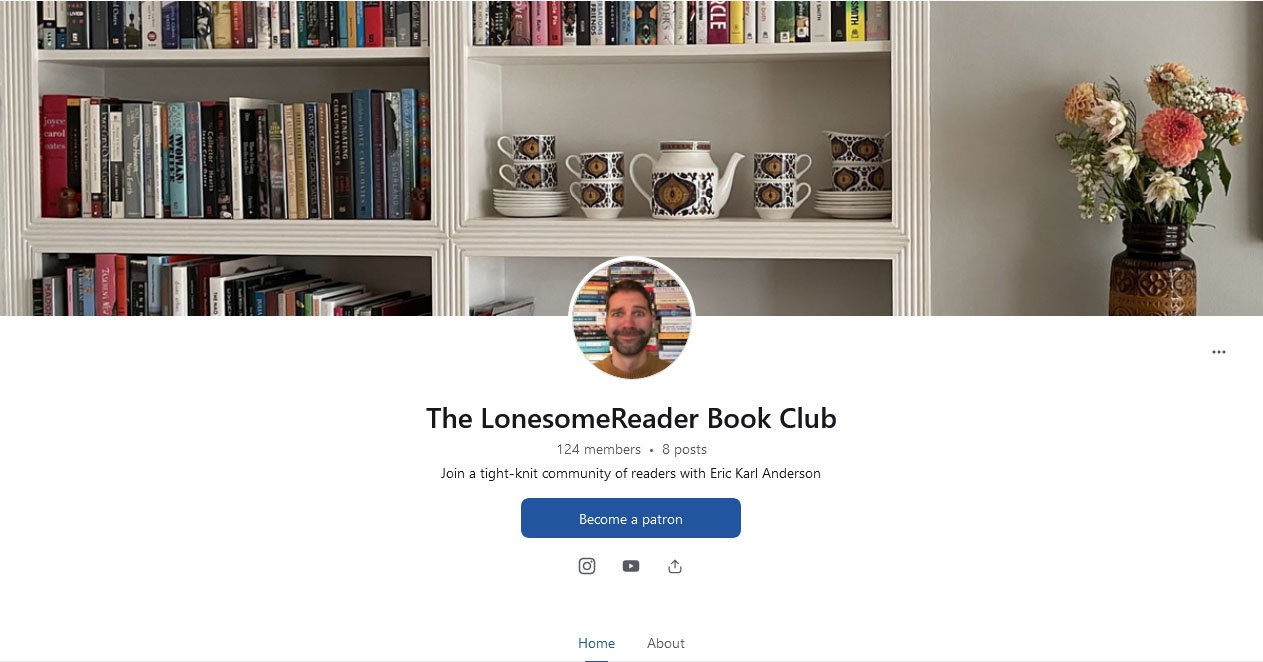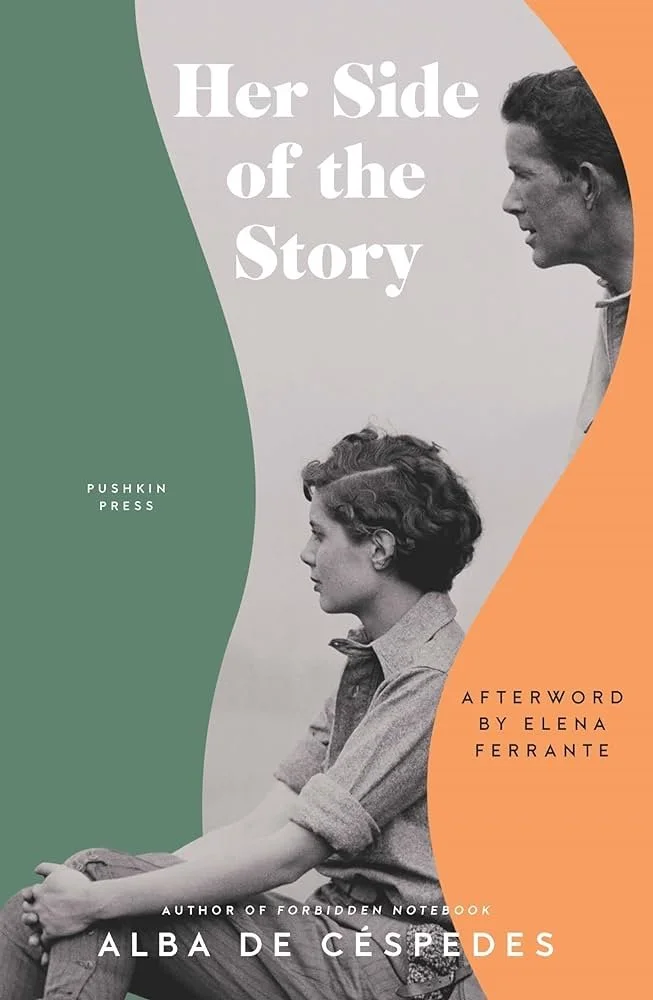There are some books which I find difficult or disappointing when I initially try to read them. I don't feel it's necessary to finish reading a book I'm not enjoying or understanding because there are so many more titles waiting to be read. However, some books warrant a second attempt. When I first tried reading “Study for Obedience” late this Summer I found it so arduous I put it down after fifty pages. The protagonist's subservient personality and cryptic narrative frustrated me. However, many readers who've appreciated this novel urged me to give it another try and it's since won the Giller Prize in Canada as well as being shortlisted for the 2023 Booker. But, more than being intrigued by any hype, I primarily picked it up again out of a curiosity to see if I could understand the meaning of Bernstein's book. I'm glad I did because I subsequently appreciated it much more. I can't say it's an enjoyable experience because it's often frustrating and there are elements I still don't understand. However, it's worth persisting with it. I think it partly worked better for me because I went into it without the expectation I'd get a traditionally plotted story.
The premise of this novel is quite straightforward. An unnamed young woman moves to an unnamed northern country to become the housekeeper for her eldest brother. She doesn't speak the language of this rural territory though her ancestors came from this region. As she gradually tries to become part of the community she's treated with suspicion and blamed for unfortunate events which occur. That's really all there is to the story and that's all that happens. Readers who require more drama in their novels will be disappointed by this book. Instead, this tale embeds us in a discomfiting personality and creates a certain mood. It's difficult to sympathise with the protagonist because she makes herself compliant, accepts the blame for things which aren't her fault and remains wilfully ignorant (or appears to do so.) She's not so much a character I want to root for but shake and tell her to stand up for herself. Once I let go of the desire to like her I became more compelled by the alternative perspective she offers.
There is little overt violence in this story but there is a sinister edge and a building tension. She is perilously isolated and her best efforts to integrate only further ostracise her from the local population. In fact, actions such as spreading decorative twigs around the town and volunteering instead make her a target for the villagers frustrations. We're limited to her perspective so it may be that her actual interactions might be different from how she presents them. There's a question about how innocent she really is because she realises that “it seemed to me that my obedience had itself taken on a kind of mysterious power. And if I had been granted this power, by some grace, against my wishes, must I not then make use of it in some way?” The villagers overreact to her presence in an exaggerated way. This highlights the absurdity of groupthink in certain communities which needlessly ostracise people who are different or who aren't native to the region. It also shows how fear and superstition often lead to violence.
This meaning is underpinned by the fact that the narrator's ancestors from this area were persecuted for being Jewish and there are overt references to the Holocaust. However, the lack of names used for locations or people only emphasizes the universal nature of this struggle. It's easy to think of contemporary parallels where large groups are forced out of their homes or killed because another group of people believe they are entitled to that space. The narrator doesn't see herself as blameless in these ongoing struggles. Rather, she states “Every single one of us on this ruined earth exhibited a perfect obedience to our local forces of gravity, daily choosing the path of least resistance, which while entirely and understandably human was at the same time the most barbaric, the most abominable course of action. So, listen. I am not blameless. I played my part.” This naturally caused me to reflect on the ways I might minimize myself in order to comfortably get by or remain blind to horrors unfolding around me on both a local and global scale.
In this way, the novel compelled a level of self-reflection and contemplation that I wasn't expecting after first trying and failing to read the book. I believe there's a special power and uniqueness in this novel. However, unlike some difficult books which took me a lot of time to appreciate this isn't one I'll be eager to revisit anytime soon. It's unrelentingly bleak and the protagonist still aggravates me. Her meandering perspective is like listening to someone who has been isolated in a cabin for years that I want to make a stealthy escape from, but I suppose in that way it's faithfully representing what this character goes through. Despite all this, I found reading the entire novel a worthwhile experience and expect it will have a lasting effect upon me.

